Latest News
13 July 2020
Year of the Lecturer 2020: a unique way to say ‘Thank you!’
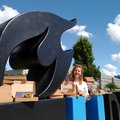
Because of the special period in recent months all TU Delft Lecturers have been put in the spotlight by the students.
02 July 2020
Mechanical engineering students design inventive pack
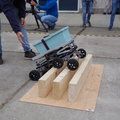
The WB62 student group has won the Mechanical Engineering Design Contest with its pack dog ‘The Scarab’.
30 June 2020
Historic floods reveal how salt marshes can save lives in the future
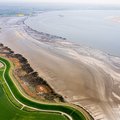
Coastal wetlands like salt marshes are increasingly recognized as valuable natural defenses that protect coasts against strong wave attacks.
30 June 2020
New software brings quantum network design to users around the world

NetSquid, a specialized simulator for quantum networks has been made freely available for non-commercial users. In development by QuTech since 2017, the software is the first of its kind to model timing effects using discrete events. NetSquid allows researchers around the world to accurately predict the performance of quantum networks and modular quantum computing systems. Such simulations are essential to design scalable quantum systems, and exploit them for radically new types of computation and communication technologies.
25 June 2020
First detector array delivered to GUSTO mission
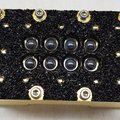
The first detector array for NASA's GUSTO mission has passed its pre-shipment review and is now shipping to the University of Arizona for integration into the balloon observatory. SRON together with TU Delft develops GUSTO's three 8-pixel-arrays, for the frequencies 4.7, 1.9 and 1.4 terahertz. They have now finished the array for the 4.7 terahertz channel—the most challenging part. GUSTO is a balloon mission that will measure emissions from cosmic material between stars.
23 June 2020
New measuring equipment accurately maps out the atmosphere above the TU Delft Campus
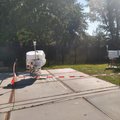
A compact and mobile cloud radar will deliver high resolution images of the cloud compositions above the TU Delft Campus.
19 June 2020
Spinoza Prize for Nynke Dekker
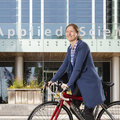
NWO has announced that TU Delft's Nynke Dekker has been awarded an NWO Spinoza Prize. The Spinoza and Stevin Prizes are the most prestigious awards in Dutch science. Besides Nynke Dekker, prizes were also awarded to prof. dr. ir. Jan van Hest (TUE), prof. dr. Pauline Kleingeld (RUG) and prof. dr. Sjaak Neefjes (LUMC/UL). Prof. dr. Linda Steg (RUG) en prof. dr. Ton Schumacher (AVL/LUMC/UL) have been awarded a Stevinprize. Each of the laureates will receive 2.5 million euros to spend on scientific research and related activities.
18 June 2020
Impulse health & technology research with nine new Medical Delta professors
Nine professors are now allowed to call themselves ‘Medical Delta professors’. They received a dual appointment at two or more academic institutions (LUMC, Leiden University, TU Delft, Erasmus MC, Erasmus University) that are affiliated with Medical Delta. This will boost health & technology research once again.
16 June 2020
Researchers create a new class of rate-sensitive mechanical metamaterials
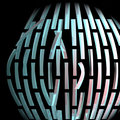
Researchers at the Department of Biomechanical Engineering of Delft University of Technology have created a new class of metamaterials that can dynamically switch their mechanical behaviour. It may form the basis for practical applications such as fall-protective clothing for the elderly. The results are to appear in the journal Science Advances on 17 June.
11 June 2020
Help from an unexpected quarter: geosciences data techniques can help predict corona spread

An international team of scientists is studying the possibility of using data assimilation, a data technique from geosciences, to predict the spread of coronavirus and the efficacy of certain measures. TU Delft geoscientists on the team think that data assimilation might prove a useful tool for the RIVM epidemiologists. A paper on the subject has been submitted to scientific journal Foundations of Data Science.
